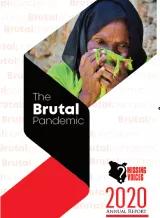The Brutal Pandemic
Kenya has a long history of police use of excessive force during law enforcement operations, either in informal settlements or in response to demonstrations, often resulting in unnecessary deaths. The Kenyan government does not keep a formal record of police killings and enforced disappearances. Our research, research from other human rights organizations and the media indicate that enforced disappearance and police killings are a systemic problem in Kenya.
While Kenya has laws in books to address police killings, these laws are inadequate, and in most cases, not enforced adequately. The turning point for the work on enforced disappearances and police killings, at least in the public conscious, was when lawyer Willie Kimani, his client Josephat Mwenda and their driver Joseph Muiruri was abducted and subsequently executed in June 2016. The public outcry that followed the discovery of their tortured bodies has rekindled public interest in addressing the issue. When confronted with human rights reports or media accounts, authorities continue to either deny or dismiss what appears to be a government policy on enforced disappearances and extrajudicial executions. Research shows that most police killings are preceded by enforced disappearances, which significantly increases whenever security agencies are engaged in eliminating suspected organized criminal groups. Kenyan police are implicated in enforced disappearances and police killings during security operations.
About Missing Voices: Missing Voices is a project aimed at ending police killings and enforced disappearances in Kenya. When confronted with human rights reports or media accounts, Kenyan authorities continue to either deny or dismiss the existence of what appears to be a government policy on enforced disappearances and police killings. Since its inception in August 2018, Missing Voices has documented and verified data of police killings and enforced disappearances, held several campaigns and events to increase public awareness on violent policing and to create platforms for dialogues with stakeholders.
